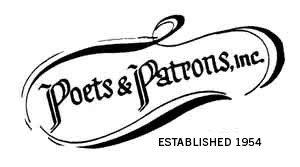Airborne he learned his wings worked their own magic.
Thermal currents, with the gentle rhythmic hunching
of his shoulders (the way I instructed him) did the work of flight,
having perfected the systems’ mechanics in tests myself,
although I warned him of the limitations of the adhesives.
First he circled the labyrinth, taunting our captors,
delighting at the sight of the tiny guards shaking their fists,
their arrows dangling in mid-air before falling back to earth,
that horrible man-bull thing rutting the lawn with its hooves,
the king stomping back and forth, cursing the sky.
Trying to be practical in all matters, I pointed the way
of a straight course toward the coast on the horizon,
but I saw Icarus feel the rush of flight, the flesh of his face
pressed taut by the wind, smiling from the kiss of sunlight
on the nape of his neck. First, he tried a few steep banks,
then loops, then, a high-velocity dive, pulling up in time
to buzz fishing boats, whitecaps lapping at his feet,
before climbing again, higher and higher, warnings forgotten
from a memory that held only the last instant of exhilaration,
higher than the gulls to where the island was hidden in its mist.
No one saw him fall but I; the fishermen didn’t notice.
But what I saw still haunts, the flailing arms and legs
splashing soundlessly into the sea, feathers floating
on the dark surface like petals scattered on a grave,
finally the crest of a plush wave, swallowing him.
They say that grief takes time, that first you make your peace
with the gods and then you make a separate peace with yourself.
Those who say so never saw their sons fall from the sky,
never gave their sons wings to fly to their deaths.
It is more of a cease-fire, not at all the same as peace.
True, the wings I invented were the means of our escape;
but eventually one grows weary of paradox and he wants to feel
what he feels, wants to face the face that still hovers in vapor
over the water and touch lost time again, wants to speak
what only can be spoken in silence long after it is too late.
